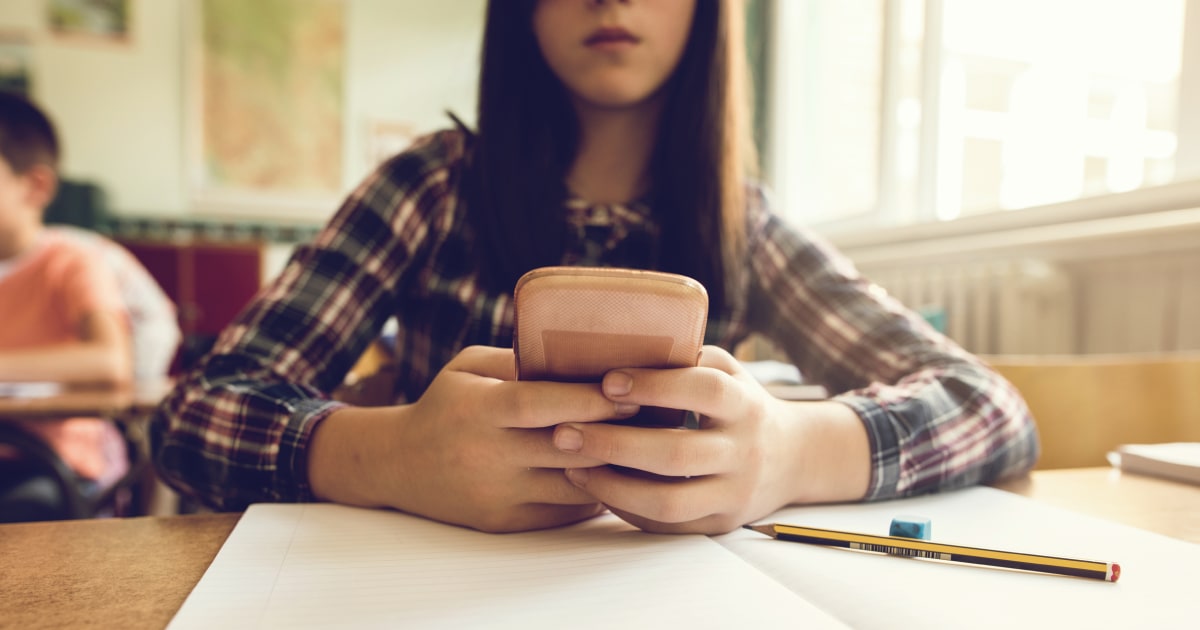- cross-posted to:
- news@lemmy.world
- cross-posted to:
- news@lemmy.world
A teachers union says it’s fed up with social media’s impact on students::The nation’s second-largest teachers union said Thursday it was losing patience with social media apps that it says are contributing to mental health problems and misbehavior in classrooms nationwide, draining time and money from teachers and school systems.



As much as mainstream social media is bad, there are online communities that are strictly necessary for some groups. Banning social media would stop closeted queer youth from participating in communities that would support them. Asking your homophobic parents about queer sexuality, for example, is a one-way ticket to getting your ass out on the street. Asking a community of fellow queer people anonymously is more viable. As toxic as social media can be, it can also be a refuge for good people who need to escape the real world and the consequences of it.
It really is an all-or-nothing approach. Either we make systems that are effective enough to stop everyone, or make them ineffective enough that they can be bypassed.
We should be helping young people navigate, and have a healthy relationship with it. The technology reflects and caters to the negative parts of the society it exists in. The best thing we can do is make the world better in the first place. Body-negativity isn’t here because social media decided it must exist, it’s because an algorithm decided that appealing to the existing negative thoughts and beliefs of people gets engagement. The only other way to deal with this problem is to dismantle capitalism so that organisations that run these platforms aren’t perpetually seeking profit at all costs.
I agree with your sentiment but how do you even go about this? From where I stand it feels like tech and social was sold out to the ad firms and tech overlords years ago. There is a measurable net negative impact to mental health among kids and adults from it. I’m all for allowing your kid to access the groups that make them feel valued and included, but at this junction phones and social in school is more harmful than helpful.
In the article, they’re talking about how social media affects students both in and out of school. Phones should be allowed in school as long as it isn’t disruptive to other students. Banning phones will just make people hide them more, instead of more openly using them and allowing discussions about how it might be harming them. Using your phone in a way that might harm your education in class is usually a sign of disengagement, lack of interest, or apathy to education, whether or not you have a phone. If anything, those same students will just do more disruptive things (talking, moving around, etc.) Banning phones is merely banning a symptom of the problem. I’ve experienced this first hand. Classes with students who didn’t give a shit? They just kept to themselves on their phone. Classes with those same students that had phone buckets? I had to leave because of my sensory issues, they were that loud.
I strongly disagree. The people who really need their phones should have them. They shouldn’t be punished because of a crumbling education system failing other people. If a student is using their phone because they don’t want the education they’re being offered, that’s ultimately their decision, you can’t help students who don’t want to help themselves. Listening to those students and funding programs where they might actually be engaged would do much more than that. Practising moderation and restraint is also an incredibly important life skill to learn at an age like that. You can’t do that if not having your phone depends on external factors.
Most of the harm from social media happens outside of class anyways.
People in education have a tendency of blaming everybody but themselves. Slapping a band-aid on the system and staff that fails students is going to create more and more problems down the line, and won’t even help in the short term.
Just to clarify are you saying that students should have access to their phones in classroom settings and should then feel engaged enough by the curriculum so as not to be on their phone or rather that while on campus they should maintain access, but be asked to keep them put away in class? At my school we had phones on us that we had to keep put away or it would be taken until after class. This seemed like a pretty basic and fair solution. If even a few kids are playing on their phone it is a pretty big distraction for everyone else.
Most of the focus on the article is in fact, on the external factors towards student behavior from social media use in general. I am not really sure what the answer is. My best friend is an ER nurse in a decent sized city and laments the amount of 12-14 year old girls that come in for both attempted and sadly often successful suicide attempts due to social media driven mental health crises.
As father to a young daughter I am constantly trying to better understand how to approach this topic as she ages.